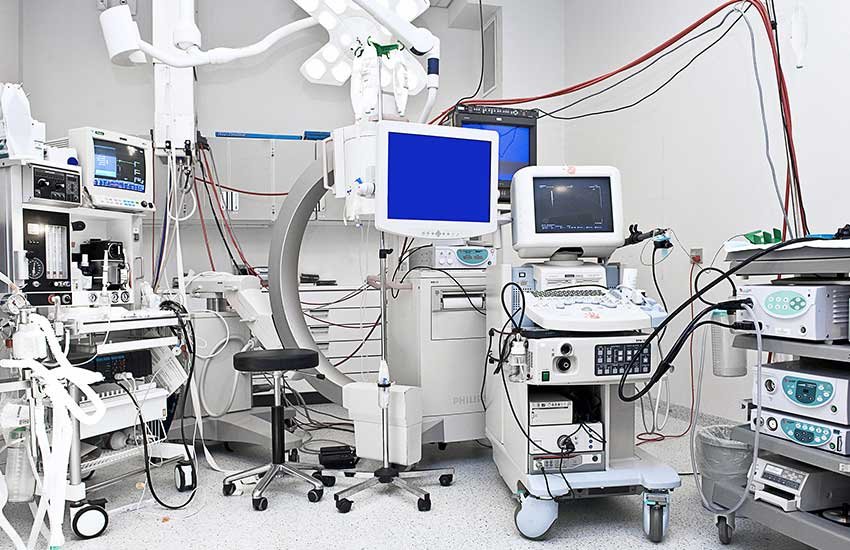Top 5 Reasons Why Regular Biomedical Equipment Maintenance Is Critical for Hospitals
Introduction
In today’s healthcare system, hospitals depend heavily on medical equipment to diagnose, monitor, and treat patients. However, without consistent biomedical equipment maintenance, even the most advanced machines can become liabilities. Whether you're managing an ICU, diagnostic lab, or small clinic, maintaining your biomedical equipment isn’t just optional—it’s essential.
Let’s explore the top five reasons why regular hospital equipment service is critical to hospital performance and patient care.

1. Ensures Patient Safety
Faulty or malfunctioning biomedical devices can lead to misdiagnosis, treatment delays, or even life-threatening complications. For example, an uncalibrated defibrillator or a malfunctioning monitor can give false readings, impacting decisions during emergencies.
✅ Regular maintenance ensures all equipment performs accurately, protecting both patients and healthcare professionals.
2. Reduces Emergency Breakdowns
Imagine an oxygen concentrator breaking down mid-surgery or an ECG machine failing during a cardiac exam. These emergency breakdowns not only halt operations but also put lives at risk.
Through preventive maintenance, you can:
- Detect small issues before they escalate
- Schedule timely repairs
- Avoid unplanned downtime and chaos
Hospitals that partner with professional biomedical service providers like BioMed rarely face such emergencies.

3. Increases Equipment Lifespan
Every medical device comes with a lifespan. But without proper care, expensive machines deteriorate quickly, forcing you to replace them sooner than necessary.
Regular hospital equipment servicing can:
- Prevent wear and tear
- Prolong machine life by 30–50%
- Save lakhs in capital expenses over time
💡 Tip: Always use certified technicians for servicing to protect the integrity of original components.
4. Ensures Compliance with Healthcare Standards
Hospitals are often required to maintain strict equipment servicing logs to meet national and international accreditation standards. Poor maintenance documentation can lead to:
- Failed audits
- Legal penalties
- Reputational damage
By scheduling periodic biomedical equipment maintenance, hospitals stay compliant with NABH, WHO, and other safety guidelines.
5. Improves Operational Efficiency
Imagine running diagnostics on outdated, sluggish machines. It not only delays treatment but increases staff frustration and patient wait time.
Here’s how maintenance boosts efficiency:
- Reduces operational interruptions
- Ensures real-time patient monitoring
- Enhances staff confidence and workflow
Well-maintained equipment is the backbone of a hospital’s performance.

Conclusion & CTA
Regular biomedical equipment maintenance isn’t just a technical task—it’s a strategic healthcare priority. From ensuring safety to reducing cost and boosting efficiency, the benefits are clear.
Whether you're managing a large hospital or a small clinic, partner with a trusted biomedical service provider like BioMed for complete support across Hyderabad and nearby areas.
📞 Need expert support?
📲 Click to Chat on WhatsApp 🌐 Explore Our Services 📩 Contact Us for a Free Consultation
